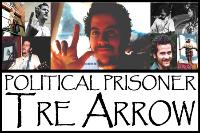Thursday, August 7
American "Federal" Banking System Isn't Federal
 If you're like most Americans, you never heard anything about the 1982 federal court decision Lewis v. United States, 680 F.2d 1239 (1982). That ruling, by the U.S. 9th District Court in San Francisco, validates a longstanding "conspiracy theory" lurking on the internet alleging the US central banking system, rather than an arm of the federal government, is instead privately owned.
If you're like most Americans, you never heard anything about the 1982 federal court decision Lewis v. United States, 680 F.2d 1239 (1982). That ruling, by the U.S. 9th District Court in San Francisco, validates a longstanding "conspiracy theory" lurking on the internet alleging the US central banking system, rather than an arm of the federal government, is instead privately owned.In 1981, Californian John L. Lewis was injured by a vehicle owned by the San Francisco branch of the Federal Reserve Bank. In 1982, he filed suit (cited here and here) against the bank under the Federal Claims Tort Act, a 1946 law that permits "private parties to sue the U.S. in federal court for most torts [civil, not criminal, offenses] committed by persons acting on behalf of the United States."
On 19 April 1982, Judge David W. Williams initially dismissed Lewis' suit against the bank, "holding that [the] federal reserve bank was not a federal agency within [the] meaning of Act and that the court therefore lacked subject-matter jurisdiction." On his appeal, a Judge Poole of the U.S. Court of Appeals on 24 June also ruled against Lewis, noting "that federal reserve banks are not federal instrumentalities for purposes of the Act, but are independent, privately owned and locally controlled corporations."
In the courts' final judgment, Williams and Poole determined that
Federal reserve banks are not federal instrumentalities for purposes of a Federal Tort Claims Act, but are independent, privately owned and locally controlled corporations [emphasis added] in light of fact that direct supervision and control of each bank is exercised by board of directors, federal reserve banks, though heavily regulated, are locally controlled by their member banks, banks are listed neither as "wholly owned" government corporations nor as "mixed ownership" corporations; federal reserve banks receive no appropriated funds from Congress and the banks are empowered to sue and be sued in their own names. . . .In April 2008, finance blogger Elaine Meinel Supkis incorporated the Lewis ruling in a succinct and accessible history that details how U.S. taxpayers were kept in the dark and the American power elite forced coerced its citizenry into economic servitude by footing the bill.
Among the myriad implications emerging from Supkis's analysis of the evolution of US banking under the guise of "public service" is this one:
If the American public does not own The Fed, just whose interests were the last three GOP presidencies--the Reagan and both Bush White Houses--serving when they heavily borrowed from those private banks the mountains cash that have spiked the national debt to precipitous levels?
So much for that cherished myth of Democrats overspending US tax dollars compared to the post-Reagan GOP.
Former 2008 GOP presidential candidate Ron Paul knew this about The Fed, but more. As a current member of the U.S. House Banking Committee, Paul, long an ardent opponent of the corporate banking's cavalier "mismanagement"of taxpayer money, regularly had these views--and more--censored by corporate media during his recent race against Republican presidential nominee John McCain.
In June, Paul, who proposed "gradually elimination" of this banking racketeering system, detailed its role in inflation, which corporate media dutifully ignored.
Update: Demo Congress & Federal Claims Tort Act
Back in November 2006, the public was hopefully that a 110th Democratic-controlled Congress would rectify the grievous harm inflicted on the rule of law by the Bush-Cheney White House. But a month after voters replaced Republican with Democrat leadership, Dennis Kucinich (D-OH) told the press that his House leadership already had pulled a "bait-and-switch" and sold out their constituency by embracing the Bush White House views on the Iraq War and impeachment.
So while expectations that Demos might rectify the cushy interest payments banksters racketeers dealt served up for themselves in 1913 is unreasonable, how about reversing GOP-imposed restrictions on the Federal Claims Tort Act?
According to a gov.track.us analysis of congressional bill sponsorship, New York congressman Maurice Hinchey is a "far-left" Democrat, i.e., he favors pro-consumer over corporate-friendly legislation.
This year, Hinchey proposed to amend the Federal Tort Reform Act on behalf of American soldiers, particularly those deployed in the "war on terrorism," via H.R. 6093, the Carmelo Rodriguez Military Medical Accountability Act of 2008. With only five House co-sponsors--all Democrats--the bill has languished in the Committee of the Judiciary since May without change. Translation: It's unlikely the bill will be approved.
In scanning an overview of the bill, it's difficult to decode the legalese, though its "far-left" sponsorship suggests H.R. 6093 could provide the basis for suits by troops and civilian employees of contractors such as Halliburton to sue for, among exposure to other health risks, "depleted uranium," a highly dense, radioactive waste from nuclear reactors the U.S. government recycles in munitions and armor plating of troop transport vehicles.











